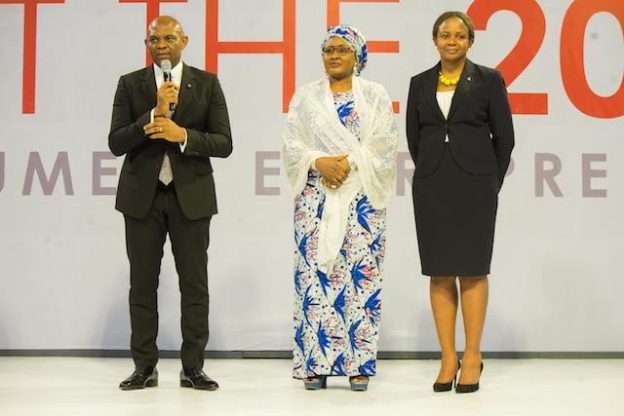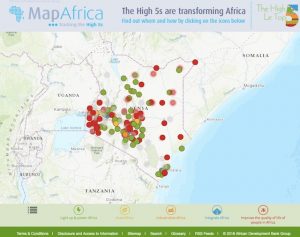This week saw the launch of the 2019 East Africa Economic Outlook Report in Nairobi by officials of the African Development Bank (AfDB), led by Gabriel Negatu, the Director-General of the East Africa regional office. This was the second in the series, after the first was well received and, the reports will now be an annual publication of the Bank.
It looked at growth prospects and economic policies, of countries in the region – Burundi, Comoros, Djibouti, Eritrea, Ethiopia, Kenya, Rwanda, Seychelles, Somalia, South Sudan, Sudan, Tanzania, and Uganda – their challenges, and particularly progress in the area of regional integration that the AfDB has made a theme of its reports and activities for 2019.
Some key findings in the East Africa AEO are:
- Fast growth in the East: East Africa at 5.7% leads growth on the continent due to policies of some countries to diversify their economies – Ethiopia and Rwanda which grew at over 7% in 2018 balance lead in manufacturing and services, while Kenya and Tanzania balance services and agriculture. Countries like Kenya (coffee/teas 29% of export and flowers 10%) Ethiopia (coffee 33%) Rwanda (mineral 41% and coffee/tea 38%) have diverse exports while others like South Sudan (mineral fuels – oil at 98% of exports), Somalia (live animals 71%) and Eritrea (ores/ash/slag 97%) are more dependent on single commodities.
- There is a disparity in the fast growth, whose quality is low, leaving poverty, unemployment and inequality to persist in regional countries. There is also fragility in the nations of South Sudan, Somalia, Comoros and even Ethiopia.
- Rising debt is a concern: The levels are at over 30% of GDP in most East African countries (over 166% in Sudan) and that, coupled with low deposit resource mobilisation is a risk. Some countries will need to make structural reforms before they slide back to pre-HIPC debt-relief levels of the 90’s and they should consider limiting imports to capital goods while promoting local manufacturing of consumer goods which also creates jobs.
- Integration concerns: The AfDB report sees regional integration in East Africa as having mixed performance; intra-regional trade is 8.3% which is below the continental average of 14.5%, and except for Comoros, East African countries all do less than 12% trade in the region. Also that informal trade at border crossings is as high as 50% of what formal trade it. The report looks at how to accelerate intra-regional trade through the removal of tariffs, simplification of export rules, one-stop border posts that share data between countries, sensitizing populations, and building better infrastructure (many border exits are single file which creates bottlenecks).
- Security pays: The Ethiopia-Eritrea peace agreements in 2018 have opened up access to Eritrea ports and will ease Ethiopia’s trade by lessening the burden on congested Djibouti than handles 80% of Ethiopia’s goods. “Feedback from Ethiopian Airlines reveals that, following the Ethiopia-Eritrea Peace Agreement, the airline is saving up to $10 million a month in fees that were previously paid to contiguous countries to use their airspace“. That said, Burundi, Somalia, South Sudan and even Ethiopia are considered to be fragile states.
- Intra-Africa trading opportunities: The goodwill from, and ratification of, the African Continental Free Trade Area (CFTA) in 2018 is expected to boost trade among African countries. But there is concern that few of the regional bodies that are supposed to promote trade are useful; they are under-budgeted and defined by personalities, not policies.
there are indications that Africa is experiencing premature deindustrialization #2019AEO @AfDB_Group https://t.co/3fsqyqsNiL – https://t.co/p2U0M7ejGJ Overall analysis reveals little firm dynamism in Africa pic.twitter.com/iXrXdQ4asv
— Aly-Khan Satchu (@alykhansatchu) April 3, 2019
The 2019 AEO for East Africa is published in English, French, Amharic and Kiswahili languages, and along with other regional reports, for West, Central and South Africa, some are also published in Arabic, Hausa, Pidgin, Yoruba and Zulu to ensure stakeholders can understand and discuss economic and policy issues.

